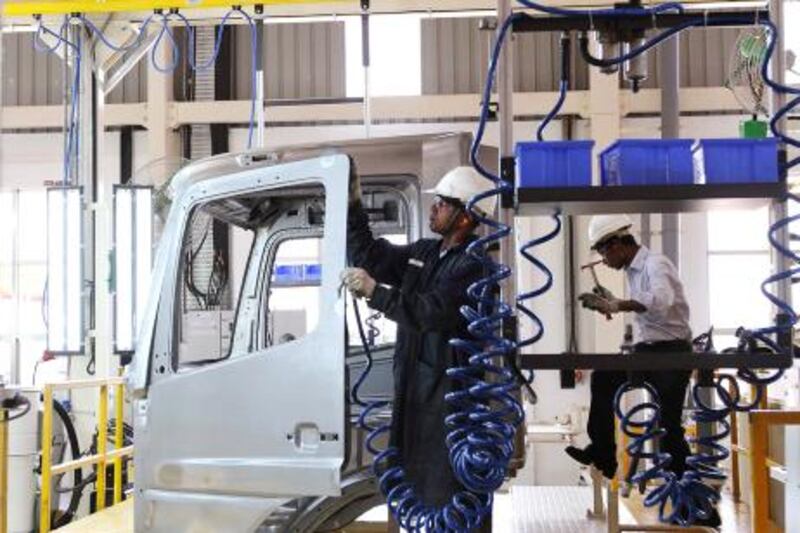Business activity across India’s private sector last month declined for the first time in more than four years, HSBC said yesterday.
“Manufacturers and service providers both recorded lower output levels, amid evidence of falling new business and a difficult economic climate,” HSBC said. “New orders received by private sector companies in India fell in July, amid reports of an increasingly fragile economy. Despite being moderate, the latest contraction was the first recorded since April 2009.”
The HSBC India composite output index, which includes both the manufacturing and services sectors, fell to 48.4 in July from 50.9 the previous month.
A reading below 50 signals a contraction. The HSBC services purchasing managers’ index (PMI) was down at 47.9 in July compared with 51.7 in June, with the contraction being the first recorded since October 2011, HSBC said.
“Activity in the service sector contracted in July led by a drop in new business, which also led to a decline in optimism among the surveyed companies,” said Leif Eskesen, HSBC’s chief economist for India and the Association of Southeast Asian Nations.
“Meanwhile, inflation gauges softened on the back of weaker demand and tough competition. While the RBI [Reserve Bank of India] has to cater to the currency at the moment, it will eventually need to cater more to growth as economic activity continues to soften.”
India’s economic growth slowed to a decade low of 5 per cent in the last financial year.
A soft rupee, which has hit record lows recently, prevented the central bank from cutting interest rates at last week’s monetary policy meeting.
The governor of the RBI, D Subbarao, said it would roll back the emergency liquidity tightening steps taken last month once stability returns to the currency market. The central bank and HSBC are both forecasting growth of 5.5 per cent for India’s economy this year.
"Manufacturing companies indicated that unfinished business levels were accumulated as a result of power cuts and raw material shortages at suppliers, while service providers commented on delayed payment from clients," according to HSBC.
Employment grew in both manufacturing and services firms last month, however, it added.
“Service providers continued to signal an optimistic outlook with regards to activity in 12 months’ time, albeit to the lowest degree in 10 months,” HSBC said.
“Panel members suggested that price discounting will be offered in an attempt to attract new business and that marketing is projected to increase. A number of firms were, however, concerned about current economic conditions and the underlying health of the Indian economy.”





